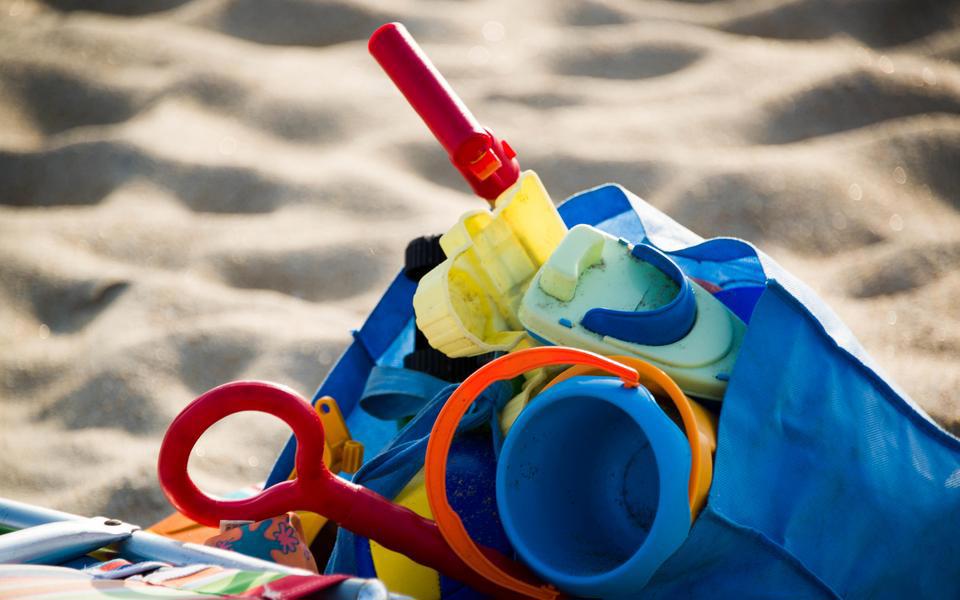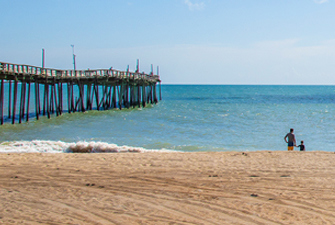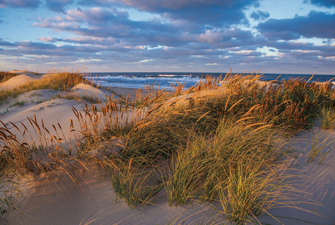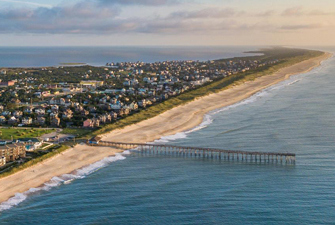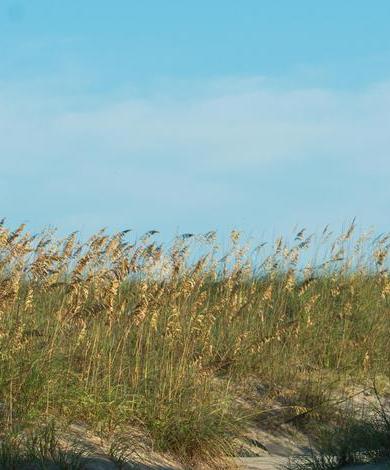
Cape Hatteras National Seashore
Be In The Know Before your Cape Hatteras National Seashore Exploration
For a truly relaxing vacation day, pack your bag and head to the beach. With over 70 miles of national seashore spanning from the Oregon Inlet to the southern tip of Ocracoke Island, there is plenty of sandy shoreline to explore in the Outer Banks. Hatteras Island’s beaches are found within Cape Hatteras National Seashore, which means they come with their own set of rules you may not know about. Before packing up your beach bag and setting off from your Surf or Sound Realty home, brush up on a few guidelines and tips to help keep you and others safe during your day of fun!
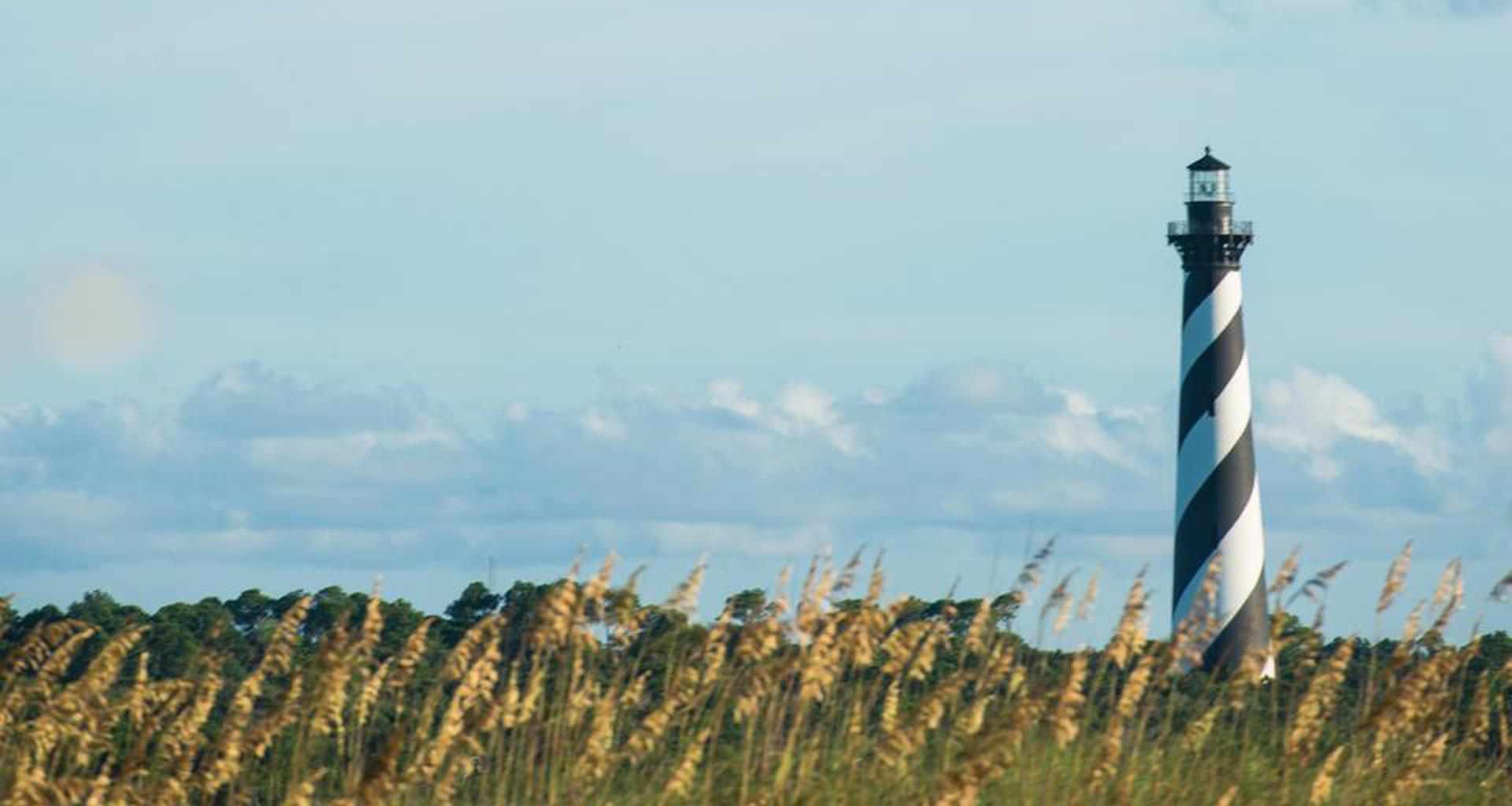

The Do’s and Don’ts on Hatteras Island
Cape Hatteras National Seashore is a beautiful natural attraction. To keep this sandbar beautiful and vibrant for years to come, there are a few rules in place that are simple, easy to follow, and make you a part of the effort to help protect the beach while also having a fun-filled day!
- Dogs are allowed on Hatteras Island beaches as long as they are kept on a six-foot leash, and please be sure to pick up after your pet!
- Fireworks are prohibited on the Cape Hatteras National Seashore. Additionally, it is against the law to possess or set off any kind of fireworks on Hatteras Island. Due to the high winds and houses mainly made of wood, fireworks present a grave threat to both the residents and ecosystems in the area.
- Distilled liquor and fortified wine are not allowed in the park, and open containers are not allowed in vehicles.
- Metal detectors are restricted from being used in the national seashore.
- Camping is permitted in designated campgrounds only. No camping is allowed on the national seashore, including its beaches, soundside and maritime forests.
Outer Banks Surf Fishing Regulations
You can pull in quite the catch by fishing on the national seashore, but there are regulations to follow. The North Carolina Division of Marine Fisheries (DMF) is the group that sets the regulations, like fishing limits, seasons, and licensing requirements. Information about size and limit sheets can be found on the DMF website or in most local tackle shops. Before casting your line surf fishing, you'll need a North Carolina Recreational Fishing License, which can easily be purchased at local tackle stores or via the DMF website.
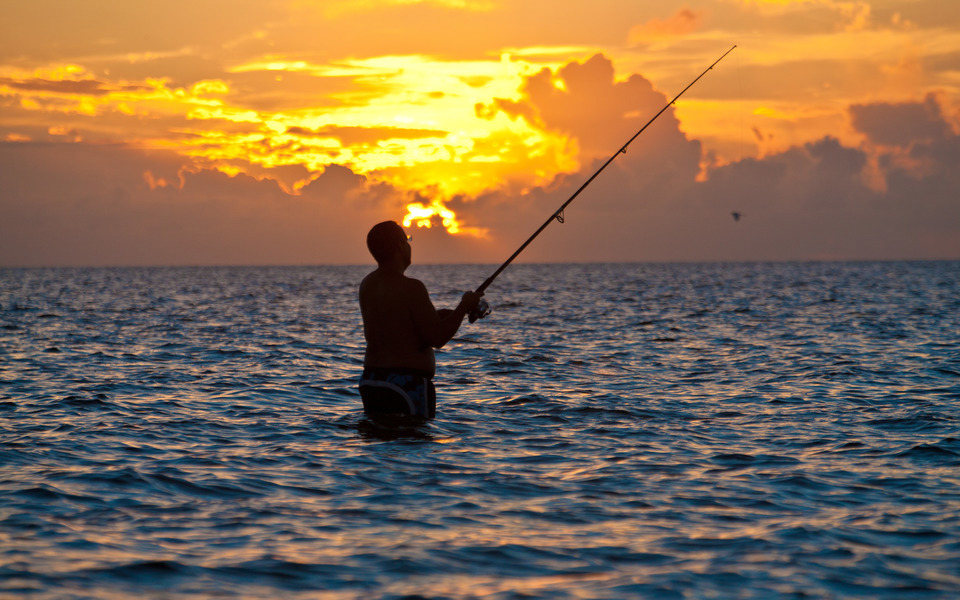
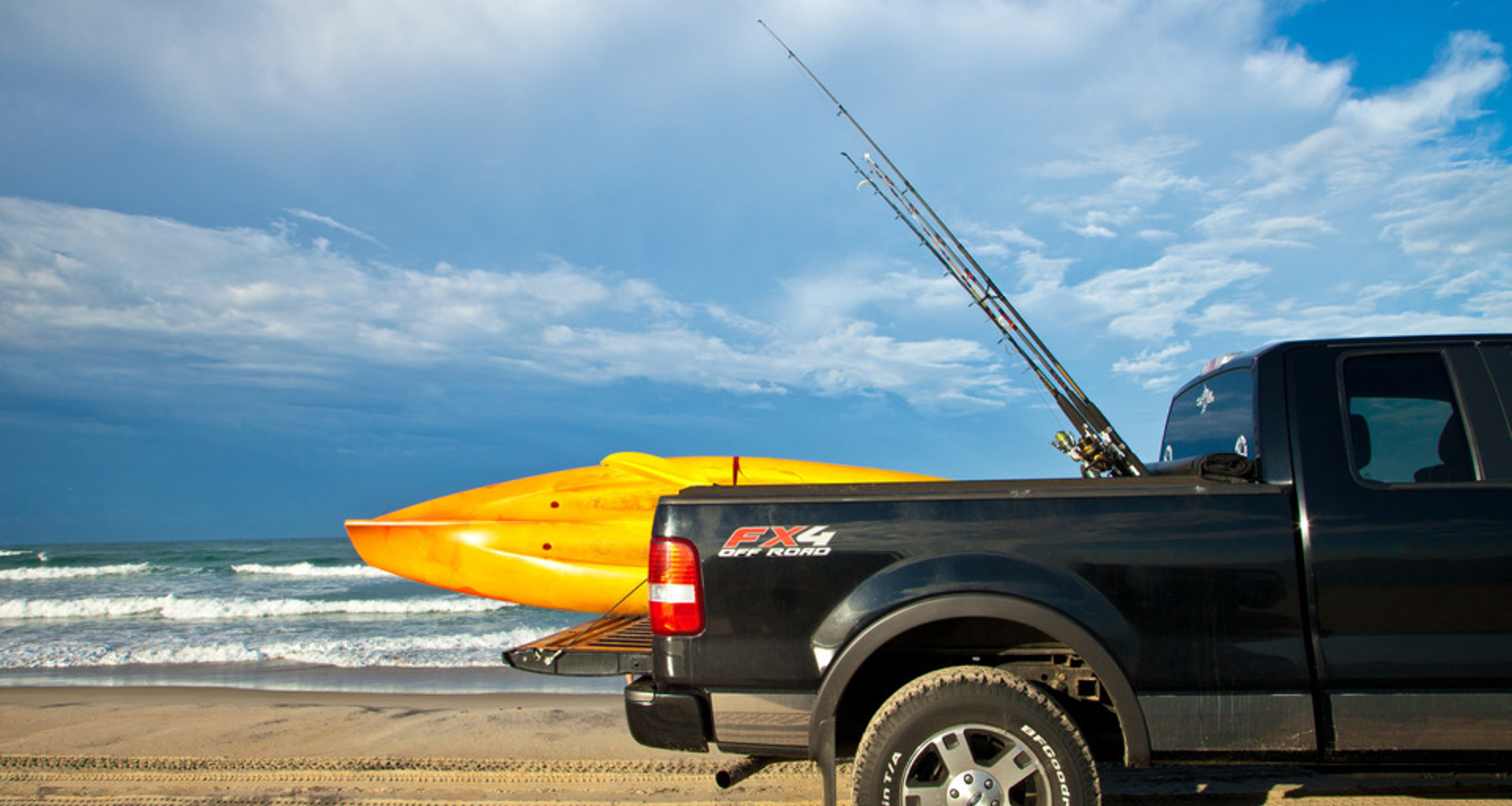
Off-Road Vehicle Access on Hatteras Island Beaches
Off-road vehicles (ORVs) are allowed on many of Hatteras Island's beaches, but a permit for driving on the beach is required.
Purchasing an ORV permit is easy! You can purchase a permit online and print it at home. If you do not have access to a printer, self-certification cards are available in the visitor centers of the Bodie Island, Cape Hatteras, and Ocracoke Lighthouses, along with select campgrounds and other National Park business locations.
Driving on the beach can be quite different than driving on a road. Here are some helpful tips to make your drive on the beach fun and safe:
- Only use the designated beach access ramps and sound access points to enter the designated ORV routes. Please take note of the ramp number, often posted at the end of the ramp right before the sandy beach.
- Drive on marked ORV routes and comply with all posted restrictions.
- Follow the "tracks" in the sand made by other drivers.
- If you get stuck, do not spin your tires. Get out with a shovel or wooden boards or call a local towing company.
- Please follow the beach speed limit of 15 mph unless otherwise posted.
- The sand on the Cape Hatteras National Seashore is much softer than other beaches, so be sure to lower the air pressure in your tires to under 20 psi.
- Do not drive through the dunes and vegetation.
- While most of the beach remains open for pedestrian traffic, please keep an eye out for any closures that the park service has posted. These closures can change daily. Please call the park service at 252.473.2111 or go online for the most current information.
How to Have Safe Beach Bonfires
There’s nothing like ending your beach day under a starry sky, sitting around a bonfire with your family. This evening activity is allowed within the seashore as long as park service rules are observed, including the following:
- All beach fires require a permit, which you can pick up from one of our Surf or Sound Realty offices, a park campground or visitor's center, or even when picking up a bundle of wood at a local store.
- Small beach fires less than three feet in diameter are allowed between 6:00 a.m. and 10:00 p.m. on any beach area between November 16 and April 30.
- Between May 1 and November 15, beach fires less than three feet in diameter are only allowed in front of the villages and at Coquina Beach or Ocracoke Day Use Area.
- The fire must be made below the high tide line.
- At least one adult needs to be present during beach bonfires.
- Completely extinguish your fire before leaving the site.

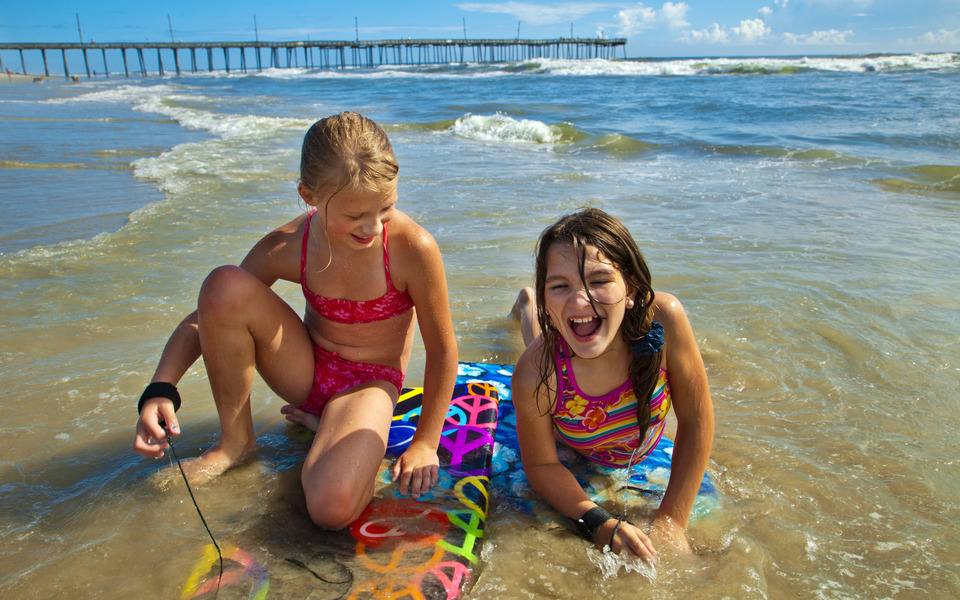
Don’t Let the “Rip” Ruin Your Trip
The waters surrounding the Outer Banks are the perfect location for various activities, but they can be dangerous. Breaks in a sandbar offshore can create rip currents or ripe tides. These currents are wide channels of water that pull out into the ocean, making them unpredictable and hazardous.
If you find yourself stuck in a rip current, remember not to panic. Do not try to swim back to the shore. Rip currents are very powerful, and you may become exhausted trying to fight them. Instead, swim parallel to the shore until you are no longer stuck in the rip current. Then, you can begin swimming back to the beach.
Remember, for ocean rescue or any other emergency, always dial 911. Be sure to make note of which street or ramp you are near when you arrive in case of an emergency.
Leave No Trace in Cape Hatteras
After a memorable beach day, it is best to leave the beach the way you found it. Be sure to remove all your belongings, which include things like chairs, canopies, and umbrellas. According to regulations, these items cannot be left on the Cape Hatteras National Seashore overnight; if you leave any belongings, the Park Service will remove them and impose a fine.
After gathering your gear, please fill in any holes you may have dug in the sand before leaving for the day. Holes pose a danger to passers-by, emergency vehicles, and wildlife.
With these rules and regulations in mind, you can have an unforgettable experience on the Cape Hatteras National Seashore and keep the beach looking as pristine as ever.
